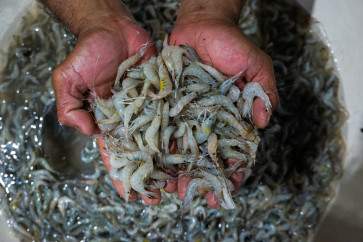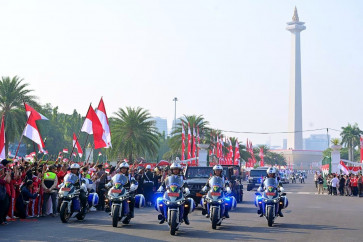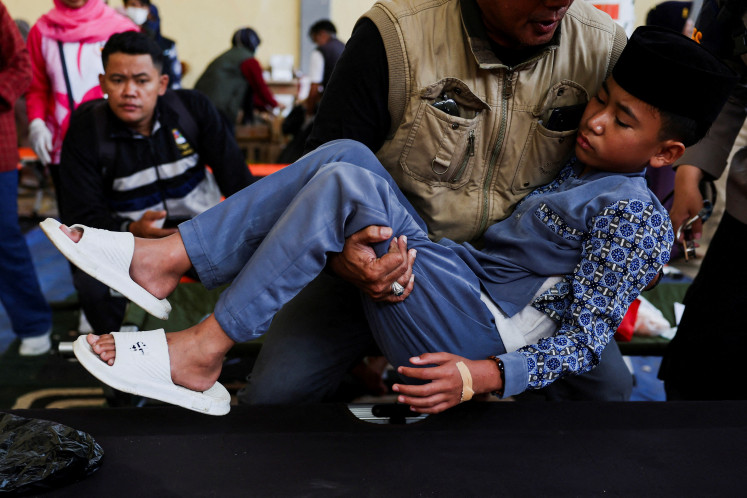Popular Reads
Top Results
Can't find what you're looking for?
View all search resultsPopular Reads
Top Results
Can't find what you're looking for?
View all search resultsYouth find organic farming charming
Ridwan Sobari, a 23-year-old farmer, rinsed leeks and mustard greens in a small pool near a communal farm in Sarongge village in Cianjur, West Java, over the weekend while his fellow farmers arranged them in a basket
Change text size
Gift Premium Articles
to Anyone
R
idwan Sobari, a 23-year-old farmer, rinsed leeks and mustard greens in a small pool near a communal farm in Sarongge village in Cianjur, West Java, over the weekend while his fellow farmers arranged them in a basket.
Ridwan said they put together packages of vegetables containing leeks, mustard greens, squash, carrots, beets and broccoli for people who visited Sarongge on a tour organized by local farmers and environmental organization the Green Initiative Foundation (GIF).
'We also send vegetables to our customers in Jakarta every week,' he said.
Ridwan said business had been good since he and his friends from the Karang Taruna youth organization decided to plant organic vegetables in a rented 400-square-meter plot of land. 'I get around Rp 400,000 [US$28.40] during each harvest,' he said, adding that he could earn more if the quality of the vegetables was better.
Ridwan said that since he joined the group in December 2013, he had been able to save some of his earnings.
'That's why I never think about going into the city and finding another job. My income from farming is quite good,' he said.
He said that he also enjoyed farming organic vegetables as it was an activity he was able to do with his friends. 'The togetherness of it is important. We hold many activities in the village, including a festival. It is fun,' he said.
Ridwan, who is a junior high school graduate, said he also hoped that one day he could save enough money to buy his own plot of land and settle down.
Like Ridwan, around 10 young farmers from Karang Taruna are also trying their luck at planting organic vegetables. Besides increasing their income, communal farming also nurtures their love for their village, and unlike other youngsters in Java, they prefer village life over the city.
Farmer Asep Sumantri, 22, said he once wanted to move to the city but opted to stay and continue farming.
Asep said a local leader taught them about organic farming. 'We do not use chemical substances, so we need to be extra attentive to our vegetables,' he said.
He said that although they were not able to produce much, the price of organic vegetables was higher than conventional farming produce.
'When the price of tomatoes plunged to Rp 500 per kilogram recently, we were still able to sell them for Rp 8,000 per kilogram,' he said.
He said that many young farmers were interested in organic farming but land was limited. 'It is hard to find a good plot of land,' he said.
Emma Piper, executive director of GIF, said that organic farming was initially the practice of farmers who used to farm at Mount Gede Pangrango National Park.
'Because the farmers were not allowed to farm there anymore, we tried to find a way for them to increase their income through several programs, including farming organic vegetables,' she said.
Emma said GIF had also started a tree adoption program in which the money from donors was not only used to replant trees in the national park but also to help empower farmers.
'Some other farmer groups eventually joined us, including the young ones,' she said.
Emma said that besides giving funds and educating them, the organization also helped them find markets in the city. 'We also have a tourist package and festival to introduce Sarongge, so more people will be aware of the village and the cause,' she said.
In cooperation with Weekend Workshop (WeWo), the Sarongge community will offer a tour to Sarongge on Sept. 19 to 20. The tour will include demonstrations on how to make lemongrass soap and organic produce harvesting.










